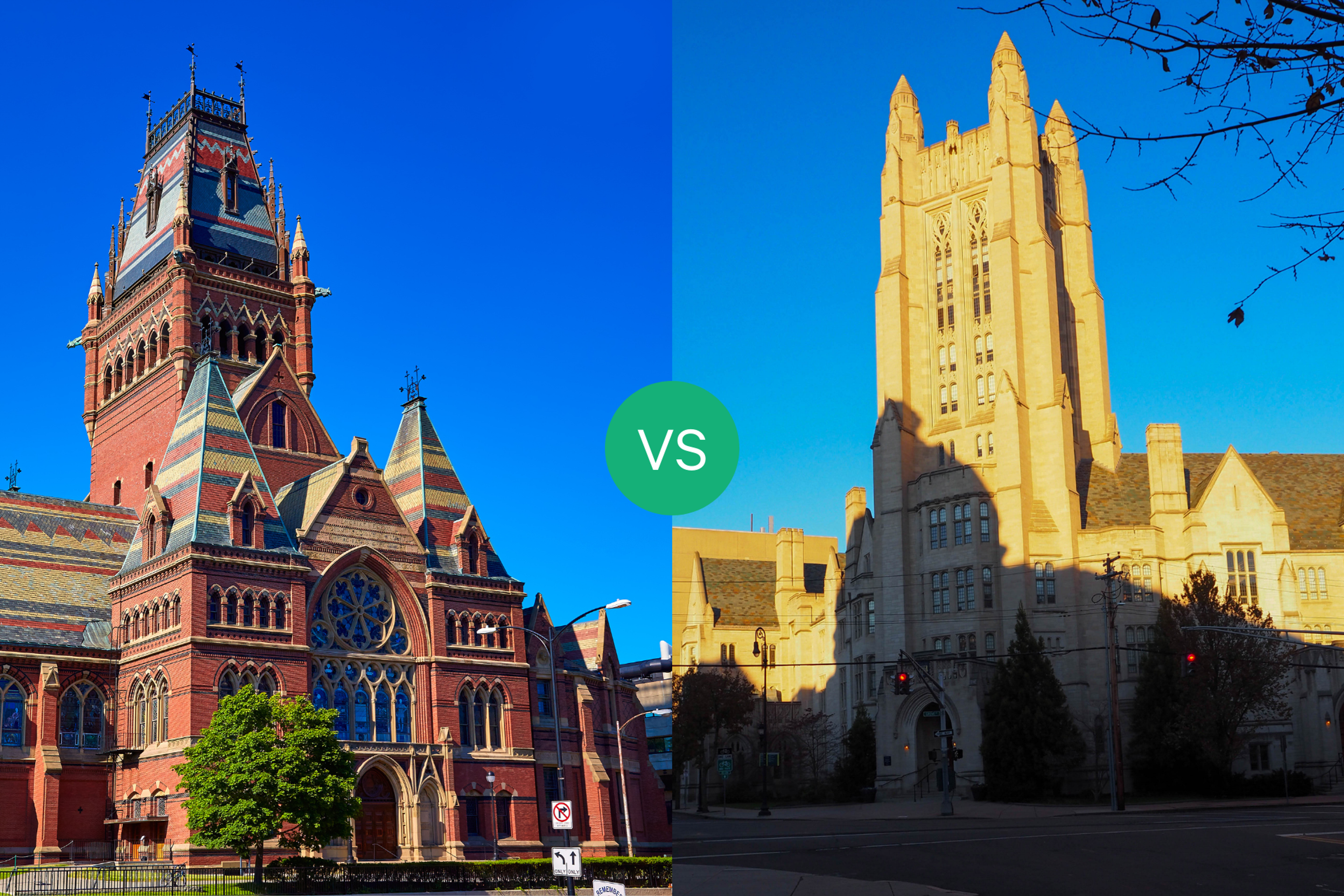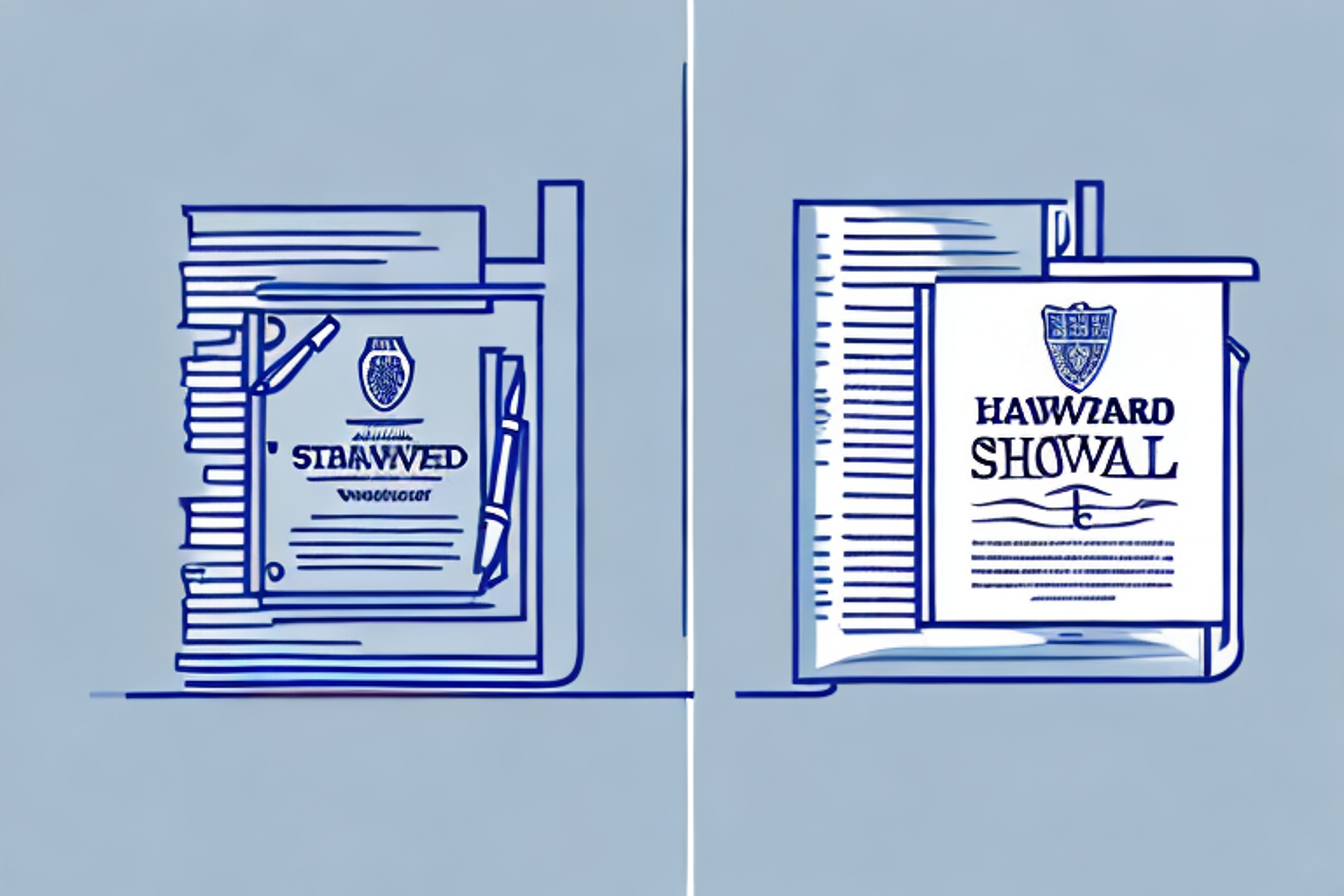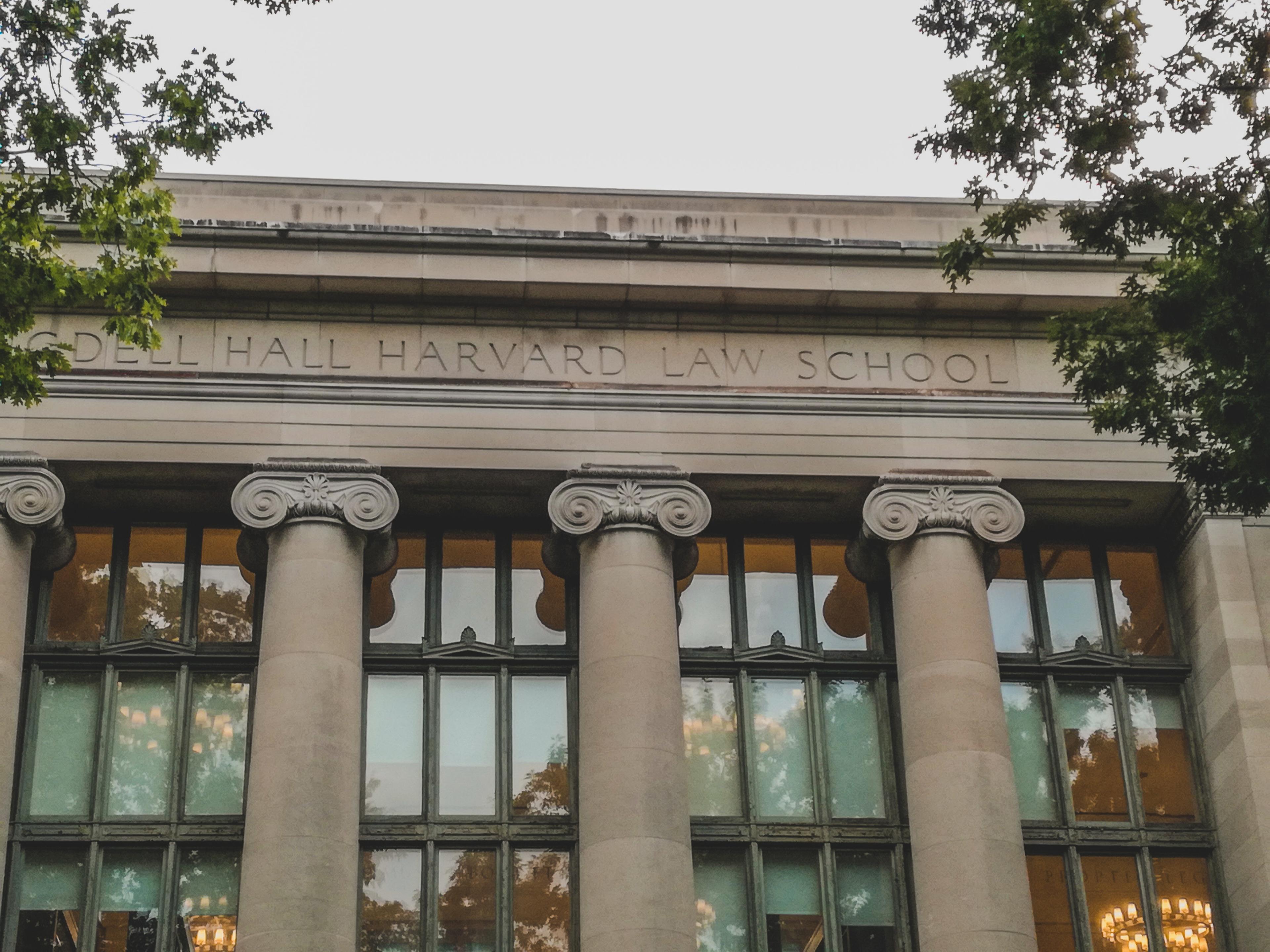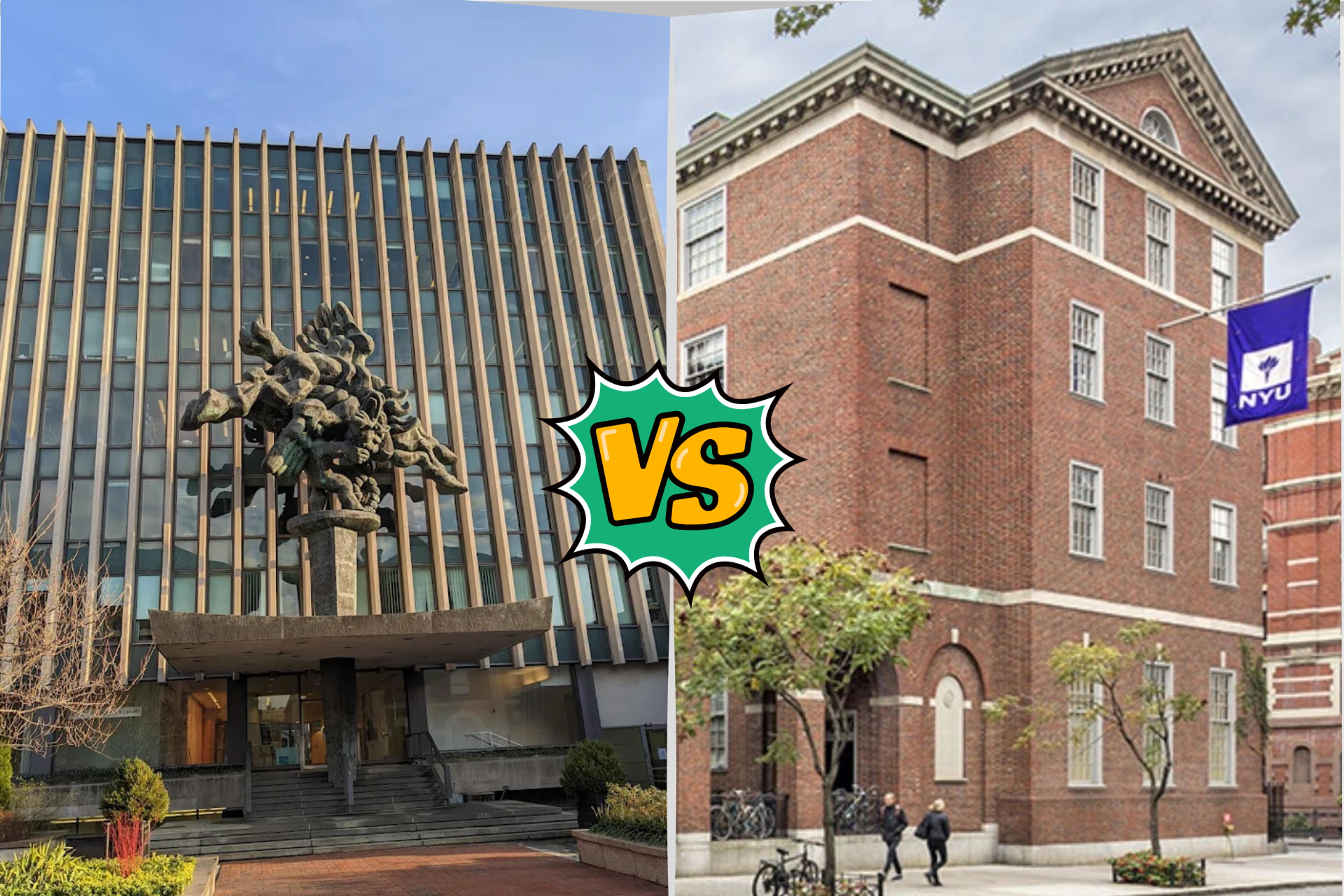Harvard Law School Vs. University of Virginia School of Law: An In-Depth Comparison
Are you considering pursuing a law degree but can't decide between Harvard Law School and University of Virginia School of Law? Look no further! Our in-depth comparison breaks down the differences in curriculum, faculty, and campus culture to help you make an informed decision.
Posted June 13, 2025

Join a free event
Learn from top coaches and industry experts in live, interactive sessions you can join for free.
Table of Contents
If you're considering attending law school, then you may already be aware that some of the most well-respected and prestigious institutions in the country are Harvard Law School and University of Virginia School of Law. With both schools boasting excellent facilities, faculty, and alumni networks, it can be challenging to decide which one to attend.In this article, we'll compare Harvard Law School and University of Virginia School of Law in detail and explore the differences between the two schools. We'll take a look at the history, curriculum, faculty, admission requirements, campus life, career prospects, alumni networks, rankings, and overall reputation of each school. By the end of this in-depth analysis, you should have a clear idea of which school might be the best choice for you.
Introduction to Harvard Law School and University of Virginia School of Law
Harvard Law School, founded in 1817, is located in Cambridge, Massachusetts. It is regarded as one of the most prestigious law schools in the world, with a long history of producing some of the most prominent legal professionals and judges in the United States. The school is also renowned for its faculty, who are some of the most eminent legal scholars and practitioners.
University of Virginia School of Law, founded in 1826, is located in Charlottesville, Virginia. Like Harvard Law School, it has an outstanding reputation, with a large alumni network that includes several U.S. presidents, including Thomas Jefferson. The law school is also known for its smaller class sizes, excellent faculty, and an exceptionally strong emphasis on practical legal training.
Both Harvard Law School and University of Virginia School of Law offer a wide range of programs and courses that cater to the diverse interests of their students. Harvard Law School offers a variety of joint degree programs, including a JD/MBA program, a JD/MPH program, and a JD/MD program. University of Virginia School of Law, on the other hand, offers a unique program called the Law and Business Program, which allows students to earn both a JD and an MBA in just three years.
History of Harvard Law School and University of Virginia School of Law
Harvard Law School has a rich history, dating back to the early 19th century when it was founded. The school played a significant role in shaping American legal thought, with prominent figures such as Oliver Wendell Holmes Jr. and Charles Fried as faculty members. Harvard Law School also has a strong tradition of public service, with many of its graduates going on to work in government or public interest law organizations.
University of Virginia School of Law, on the other hand, was founded by Thomas Jefferson, who was passionate about education and instilled a love of learning in the institution. The law school has always been committed to legal education that is rigorous, innovative, and grounded in the practical application of the law. Over the years, the school has maintained this tradition while also incorporating new courses and programs to meet the changing needs of the legal profession.
Despite their differences, both Harvard Law School and University of Virginia School of Law are highly respected institutions in the legal community. They have produced many notable alumni who have made significant contributions to the field of law. In recent years, both schools have also made efforts to increase diversity and inclusivity within their student bodies and faculty, recognizing the importance of a diverse legal profession that reflects the communities it serves.
Comparison of the curriculum offered by Harvard Law School and University of Virginia School of Law
Both Harvard Law School and University of Virginia School of Law offer an impressive array of courses and programs for students interested in pursuing legal studies. At Harvard Law School, students can choose from a broad range of courses, including constitutional law, civil rights law, criminal law, and international law. Additionally, the school offers joint degree programs that allow students to earn a law degree and another graduate degree simultaneously.
University of Virginia School of Law also offers a diverse curriculum, with courses in areas such as corporate law, intellectual property law, and environmental law. The law school's clinical program is particularly robust, providing students with significant opportunities for hands-on experience in legal practice. Moreover, the school also offers several dual degree programs, including a JD/MBA program with the university's Darden School of Business.
Faculty comparison: Harvard Law School vs. University of Virginia School of Law
Faculty quality is an essential consideration in any evaluation of law schools. Harvard Law School has a world-class faculty that includes some of the most distinguished legal scholars in the United States. The faculty is composed of professors who are experts in several areas of law, including constitutional law, criminal law, and civil rights law.
University of Virginia School of Law also has a first-rate faculty who are experts in various fields of law. The faculty includes several legal scholars who are among the most respected academics in their respective areas of expertise.
Class size and student-to-faculty ratio at Harvard Law School and University of Virginia School of Law
Class size is an essential consideration for any law student, as it affects the quality of instruction and the degree of interaction between students and faculty. At Harvard Law School, class sizes tend to be larger, with an average class size of around 80 students. The student-to-faculty ratio is around 7:1.
University of Virginia School of Law, on the other hand, has smaller class sizes, which allow for more in-depth discussions and better engagement between students and faculty. The average class size is around 40 students, and the student-to-faculty ratio is approximately 6:1. This means that students at University of Virginia School of Law receive more personalized attention from their professors.
Admission criteria: How to get into Harvard Law School vs. University of Virginia School of Law
Both Harvard Law School and University of Virginia School of Law are highly selective institutions, and competition for admission is fierce. To be admitted to either school, you must demonstrate exceptional academic achievement, as well as evidence of leadership, intellectual curiosity, and a commitment to public service.
The admissions criteria differ somewhat between the two schools. Harvard Law School places a more significant emphasis on grades and test scores, so high GPA and LSAT scores are critical factors in the admissions process. University of Virginia School of Law places a more significant emphasis on the applicant's personal qualities and experiences, so the admissions committee looks beyond grades and test scores to assess applicants' overall potential better.
Cost comparison: Tuition fees, living expenses, and financial aid available for students at both schools
Tuition fees and living expenses are also important factors for law students to consider when deciding which school to attend. Harvard Law School has among the highest tuition fees in the United States, with students paying over $70,000 per year for tuition and living expenses. However, the school offers generous financial aid packages, including need-based aid and scholarships, to help students manage their costs.
University of Virginia School of Law has a lower tuition fee compared to Harvard Law School, with students paying around $60,000 per year. The school also offers a range of financial aid options, including scholarships, grants, and loans, to help students manage their expenses.
Campus life at Harvard Law School and University of Virginia School of Law
Campus life is another important factor for law students. Harvard Law School has a large and diverse student body, with students from all over the world. There is a lot of campus activities and events, including law reviews, journals, and advocacy groups.
University of Virginia School of Law, on the other hand, has a more intimate campus community, with a smaller student body but still providing many opportunities for students to get involved in extracurricular activities, including student-run organizations, legal journals, and moot court competitions.
Career prospects: Post-graduation opportunities at Harvard Law School vs. University of Virginia School of Law
Post-graduation career opportunities are one of the most critical factors for prospective law students. Both Harvard Law School and University of Virginia School of Law have strong reputations and extensive alumni networks that provide graduates with several employment opportunities after graduation.
Harvard Law School continues to be a top choice for students interested in working in the private sector, with graduates working for many of the country's most prestigious law firms and corporations. Graduates also pursue top jobs in government, non-profit, and public interest law organizations.
University of Virginia School of Law, while not being as prominent in the private sector as Harvard Law School, has an excellent reputation for training lawyers for public service roles in government and public interest law organizations. Graduates also work in top-tier law firms and in-house legal departments in corporations.
Alumni networks comparison: How do the alumni networks compare between the two schools?
Both Harvard Law School and University of Virginia School of Law have extensive and robust alumni networks. Harvard Law School has a large global alumni community, with many alumni holding prestigious positions in the legal profession and other fields.
University of Virginia School of Law also has an alumni network that spans the globe, with graduates holding key positions in the legal profession, government, and business. The school's alumni network is especially strong in public service sectors.
Rankings and reputation: How do they compare in terms of global rankings and reputation?
Finally, let's take a look at the global rankings and reputation of Harvard Law School and University of Virginia School of Law.
Harvard Law School is one of the most highly regarded law schools in the world, consistently ranking at or near the top in various global rankings. The school holds a reputation for providing an exceptional legal education and producing some of the most prominent legal professionals and judges in the United States and other countries.
University of Virginia School of Law is also highly regarded, consistently ranking among the top law schools in the United States. The school is particularly well-known for its emphasis on practical legal training and commitment to public service.
Conclusion: Which law school is the better choice for you?
After evaluating the different aspects of Harvard Law School and University of Virginia School of Law, it is clear that both schools provide an excellent legal education and offer significant opportunities for their graduates. Ultimately, the choice of which law school to attend will depend on factors such as personal preferences, career goals, and financial considerations.
If you're interested in pursuing a career in a private law firm or a large corporation, then Harvard Law School may be the better choice for you. However, if you're interested in a career in public service or want to receive more personalized attention from faculty, then University of Virginia School of Law may be the better option.
Whatever your choice, both Harvard Law School and University of Virginia School of Law are outstanding institutions that provide a rich and rewarding educational experience for their students.
Browse hundreds of expert coaches
Leland coaches have helped thousands of people achieve their goals. A dedicated mentor can make all the difference.


















